The Where, the Why, and the How: 75 Artists Illustrate Wondrous Mysteries of Science, by Jenny Volvovski, Julia Rothman, and Matt Lamothe • Foreword by David Macaulay.
Available on amazon UK and USA
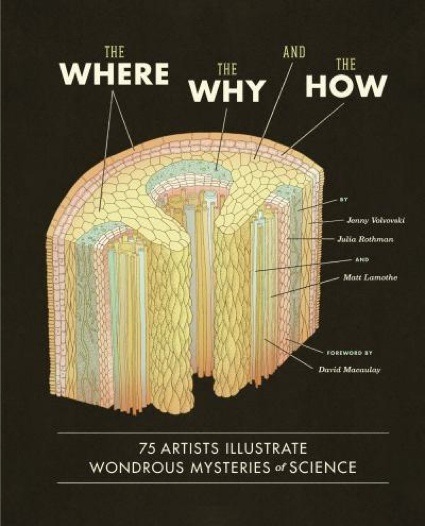
Publisher Chronicle Books writes: A science book like no other, The Where, the Why, and the How turns loose 75 of today’s hottest artists onto life’s vast questions, from how we got here to where we are going. Inside these pages some of the biggest (and smallest) mysteries of the natural world are explained in essays by real working scientists, which are then illustrated by artists given free rein to be as literal or as imaginative as they like. The result is a celebration of the wonder that inspires every new discovery. Featuring work by such contemporary luminaries as Lisa Congdon, Jen Corace, Neil Farber, Susie Ghahremani, Jeremyville, Jon Klassen, Jacob Magraw, and many more, this is a work of scientific and artistic exploration to pique the interest of both the intellectually and imaginatively curious.
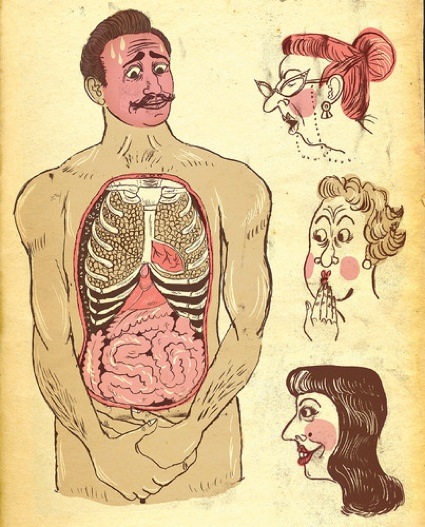 Gilbert Ford illustrated Why do we blush?
Gilbert Ford illustrated Why do we blush?
Teaming up science mysteries with illustration, comics or even fine art is obviously a nice idea. But a great idea is not enough. It needs to comes with a fresh direction, clever match-making, genuine curiosity and impeccable taste. This book, fortunately, has all these ingredients.
The scientific enigmas explored in the book depart far far away from us with “What existed before the Big Bang?” then moves gradually, in a very Powers of Ten fashion, to issues pertaining to the universe (“Are there more than 3 dimensions?”), our planet (“Can evolution outpace climate change?), the mundane peculiarities of human beings (“why do we hiccup?”), the idiosyncrasy of the animal world (“Why don’t animal muscles atrophy during hibernation?”) then the questions start investigating what goes on inside our bodies and they end on the nanoscale (“Are nanomaterials dangerous?”)
The result is often gripping and sometimes even baffling. Some issues remain a mystery: i’m afraid that scientists are still unsure about the reason why whales sing (in case the question is keeping you awake) and more annoyingly, they don’t know either what happens to time as you approach the speed of light. But whether they have a clear-cut answer to a mystery or only tentative theories, the scientists manage to explain the phenomenon and its raison d’être with a limpid, intelligible and fairly short text.
This book is delightful and if i have one negative commentary to say about the book it’s that I’m not a huge fan of the retro-feel of the illustrations. It gives a uniformity to the book which imho is both a blessing and a curse. But, hey! Now i know why pigeons bob their head when they walk and that knowledge, my friend, is going to make me the star of all the Christmas parties this year.
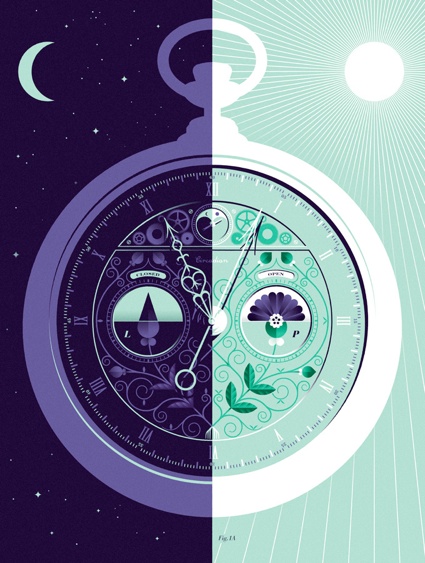 Lab Partners illustrated the Circadian Clock
Lab Partners illustrated the Circadian Clock
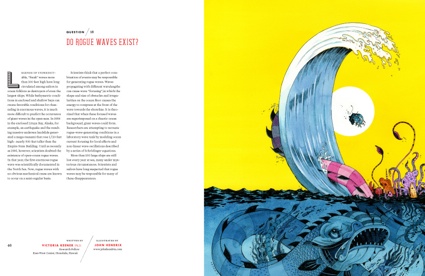 John Hendricks illustrating Do Rogue Waves Exist?
John Hendricks illustrating Do Rogue Waves Exist?
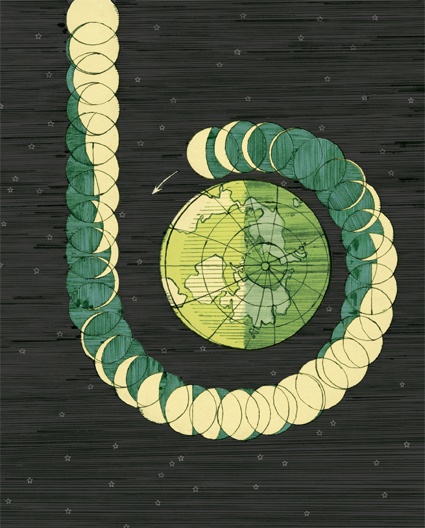 Lauren Nassef‘s illustration of “What is the origin of the moon?”
Lauren Nassef‘s illustration of “What is the origin of the moon?”
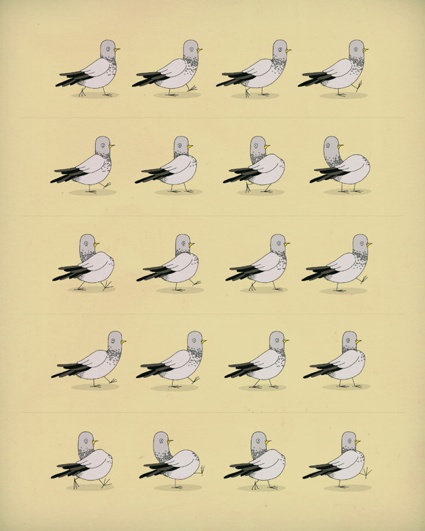 Alex Eben Meyer‘s take on “Why do pigeons bob their heads when they walk?”
Alex Eben Meyer‘s take on “Why do pigeons bob their heads when they walk?”
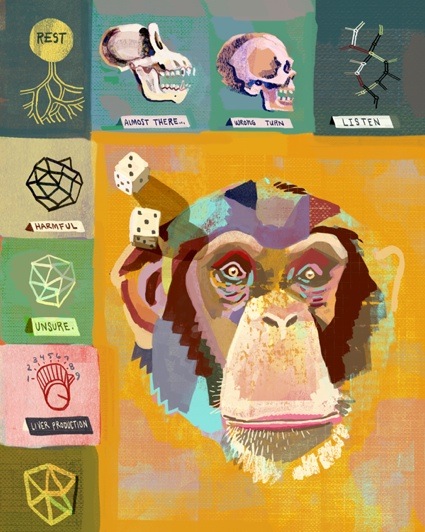 Matt Forsythe illustrated “Why are humans and chimps so different if they have nearly identical DNA?”
Matt Forsythe illustrated “Why are humans and chimps so different if they have nearly identical DNA?”
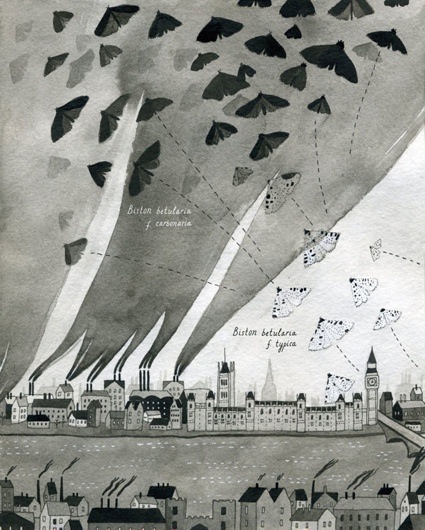 Yelena Bryksenkova illustrated “Can evolution outpace climate change?”
Yelena Bryksenkova illustrated “Can evolution outpace climate change?”
The book trailer!
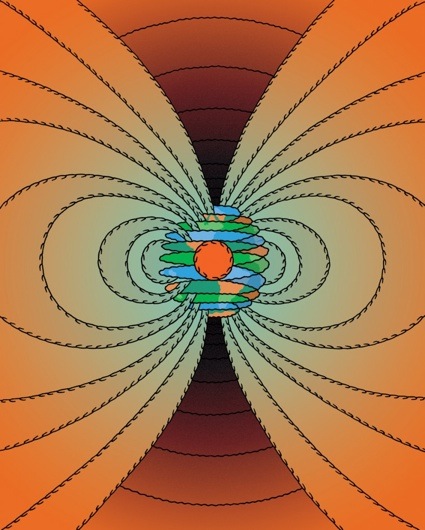 Luke Ramsey illustrated “What triggers the Earth’s polarity?”
Luke Ramsey illustrated “What triggers the Earth’s polarity?”
